Ronas Shakya
A Showdown of ChatGPT vs DeepSeek in Solving Programming Tasks
Mar 16, 2025Abstract:The advancement of large language models (LLMs) has created a competitive landscape for AI-assisted programming tools. This study evaluates two leading models: ChatGPT 03-mini and DeepSeek-R1 on their ability to solve competitive programming tasks from Codeforces. Using 29 programming tasks of three levels of easy, medium, and hard difficulty, we assessed the outcome of both models by their accepted solutions, memory efficiency, and runtime performance. Our results indicate that while both models perform similarly on easy tasks, ChatGPT outperforms DeepSeek-R1 on medium-difficulty tasks, achieving a 54.5% success rate compared to DeepSeek 18.1%. Both models struggled with hard tasks, thus highlighting some ongoing challenges LLMs face in handling highly complex programming problems. These findings highlight key differences in both model capabilities and their computational power, offering valuable insights for developers and researchers working to advance AI-driven programming tools.
Towards Privacy-Preserving Data-Driven Education: The Potential of Federated Learning
Mar 16, 2025



Abstract:The increasing adoption of data-driven applications in education such as in learning analytics and AI in education has raised significant privacy and data protection concerns. While these challenges have been widely discussed in previous works, there are still limited practical solutions. Federated learning has recently been discoursed as a promising privacy-preserving technique, yet its application in education remains scarce. This paper presents an experimental evaluation of federated learning for educational data prediction, comparing its performance to traditional non-federated approaches. Our findings indicate that federated learning achieves comparable predictive accuracy. Furthermore, under adversarial attacks, federated learning demonstrates greater resilience compared to non-federated settings. We summarise that our results reinforce the value of federated learning as a potential approach for balancing predictive performance and privacy in educational contexts.
Creating Artificial Students that Never Existed: Leveraging Large Language Models and CTGANs for Synthetic Data Generation
Jan 03, 2025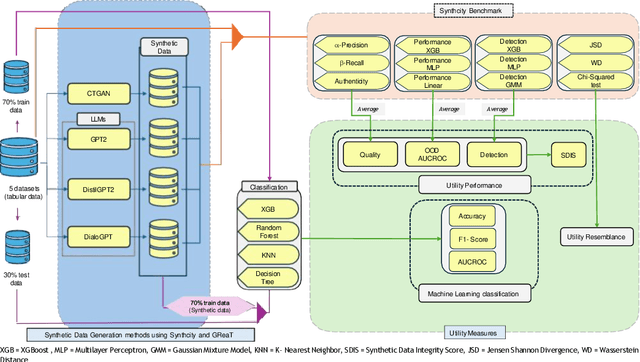

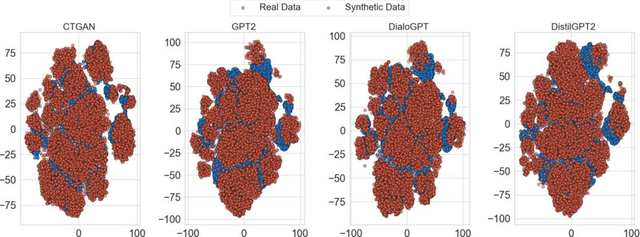
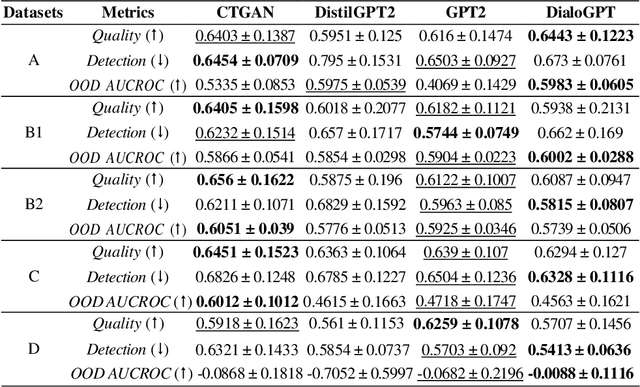
Abstract:In this study, we explore the growing potential of AI and deep learning technologies, particularly Generative Adversarial Networks (GANs) and Large Language Models (LLMs), for generating synthetic tabular data. Access to quality students data is critical for advancing learning analytics, but privacy concerns and stricter data protection regulations worldwide limit their availability and usage. Synthetic data offers a promising alternative. We investigate whether synthetic data can be leveraged to create artificial students for serving learning analytics models. Using the popular GAN model CTGAN and three LLMs- GPT2, DistilGPT2, and DialoGPT, we generate synthetic tabular student data. Our results demonstrate the strong potential of these methods to produce high-quality synthetic datasets that resemble real students data. To validate our findings, we apply a comprehensive set of utility evaluation metrics to assess the statistical and predictive performance of the synthetic data and compare the different generator models used, specially the performance of LLMs. Our study aims to provide the learning analytics community with valuable insights into the use of synthetic data, laying the groundwork for expanding the field methodological toolbox with new innovative approaches for learning analytics data generation.
Scaling While Privacy Preserving: A Comprehensive Synthetic Tabular Data Generation and Evaluation in Learning Analytics
Jan 12, 2024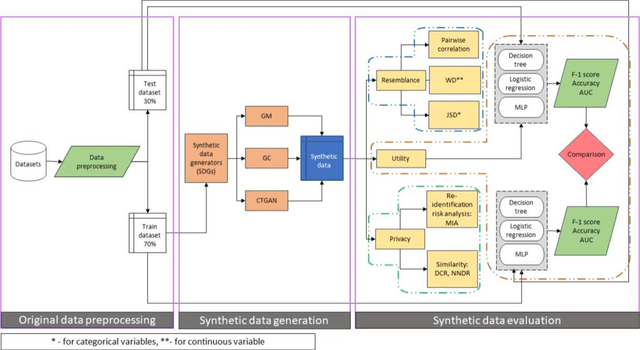
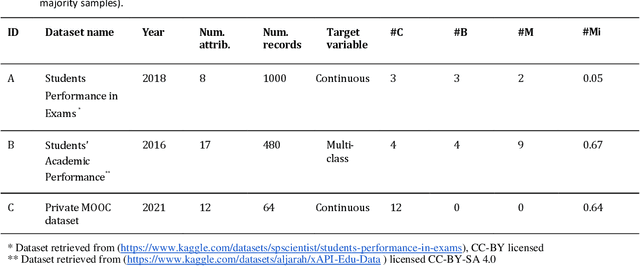
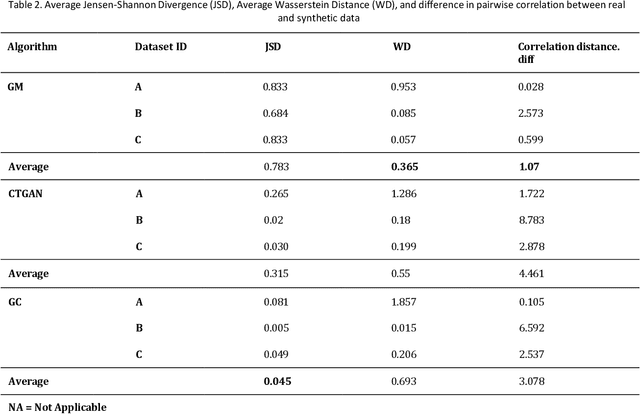
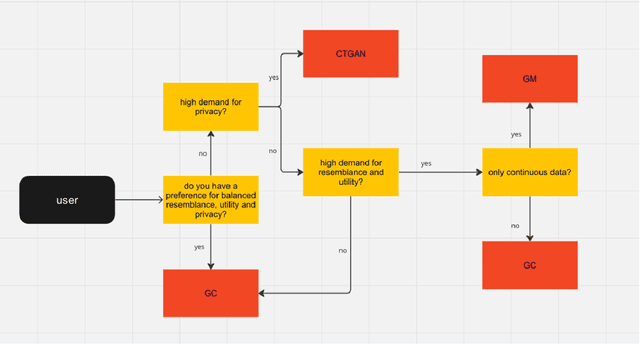
Abstract:Privacy poses a significant obstacle to the progress of learning analytics (LA), presenting challenges like inadequate anonymization and data misuse that current solutions struggle to address. Synthetic data emerges as a potential remedy, offering robust privacy protection. However, prior LA research on synthetic data lacks thorough evaluation, essential for assessing the delicate balance between privacy and data utility. Synthetic data must not only enhance privacy but also remain practical for data analytics. Moreover, diverse LA scenarios come with varying privacy and utility needs, making the selection of an appropriate synthetic data approach a pressing challenge. To address these gaps, we propose a comprehensive evaluation of synthetic data, which encompasses three dimensions of synthetic data quality, namely resemblance, utility, and privacy. We apply this evaluation to three distinct LA datasets, using three different synthetic data generation methods. Our results show that synthetic data can maintain similar utility (i.e., predictive performance) as real data, while preserving privacy. Furthermore, considering different privacy and data utility requirements in different LA scenarios, we make customized recommendations for synthetic data generation. This paper not only presents a comprehensive evaluation of synthetic data but also illustrates its potential in mitigating privacy concerns within the field of LA, thus contributing to a wider application of synthetic data in LA and promoting a better practice for open science.
 Add to Chrome
Add to Chrome Add to Firefox
Add to Firefox Add to Edge
Add to Edge